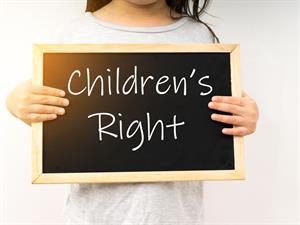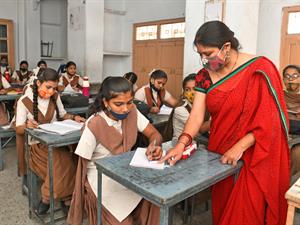
PUMPA - SMART LEARNING
எங்கள் ஆசிரியர்களுடன் 1-ஆன்-1 ஆலோசனை நேரத்தைப் பெறுங்கள். டாப்பர் ஆவதற்கு நாங்கள் பயிற்சி அளிப்போம்
Book Free DemoThe UN Convention on the Rights of the Child \((UNCRC)\):
The United Nations Convention on the Rights of Child is an international convention that was drafted and adopted by the General Assembly on \(\text{November 20, 1989}\).

Child Rights
The Convention calls anyone under the age of \(18\) as a child, and they will be protected under this Convention. The UNCRC is signed by \(196\) countries.
USA: The United States of America is the only big democratic country that is yet to ratify the Convention on Child Rights.
The UNCRC has listed \(40\) such rights that are entitled to the children under the convention; some of the most important rights are discussed below.
1. Right to Life
The right to life is considered the most essential and basic right of a child that it acquires even before its birth. It also implies the basic right to food, clothing, and shelter essential for sustenance and allows it to lead a life with dignity.
2. Right to Family Environment
- A Child is entitled to his/her childhood and to be nurtured within a family environment and live alongside his parents.
- They are also allowed to live a life of destitution when abandoned or lost from the family and are also allowed to be reunited with their family.
- According to the law, adoption of Children is also allowed, which helps the abandoned child live with a new family other than his parents.
3. Right to Education:

Children with Disability
The Constitution of India guarantees the education of a child under “Article \(21 A\)” of the Fundamental Rights. The provision provides “Free and compulsory education” to a child between \(6-14\) years.
\(86^{th}\) Amendment: The provision of “Free education for all” was achieved by this amendment which was hailed as the “New dawn of the Second revolution” in the chapter of rights of the Citizen.
The “Right to Education Act of \(\text{2009 (RTE)}\)”, provides free and compulsory education for a child with full-time Elementary education in a formal school with satisfying quality.
4. Right to benefit from social security
The country and its constitutions provide enough social security to the children by creating child-specific schemes that support them even if they didn’t receive proper financial support from their parents.
Special infrastructure should be created for children with disabilities, and targeted schemes should be created to ensure they are not left out.
Reference:
Children with Disability- SumitSaraswat / Shutterstock